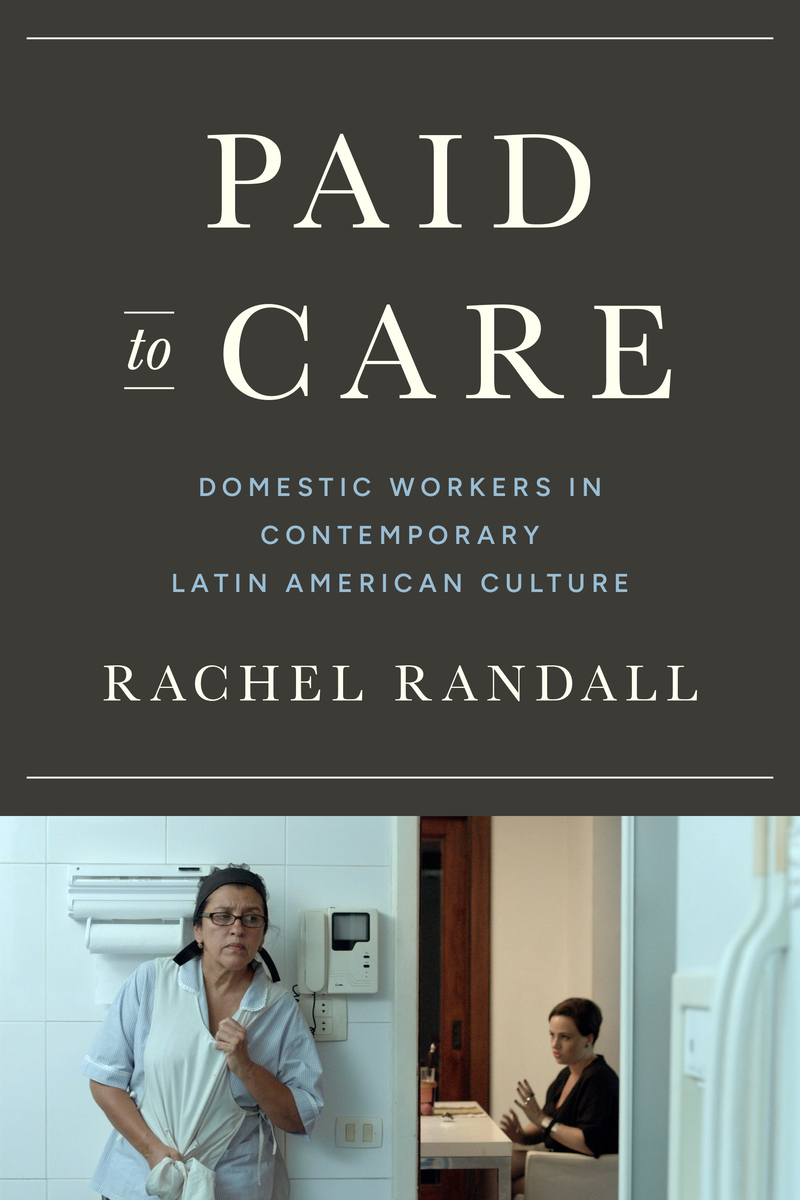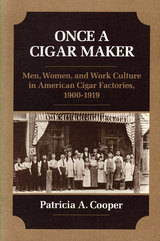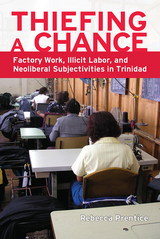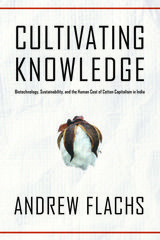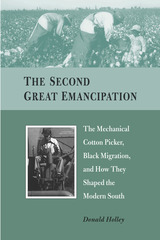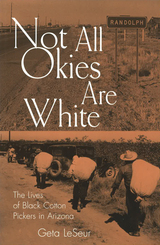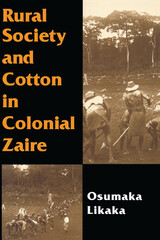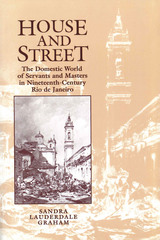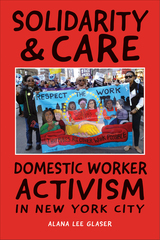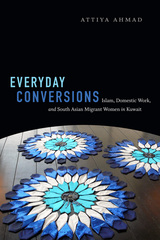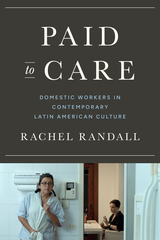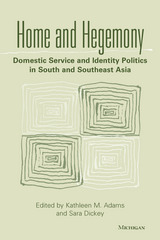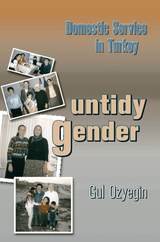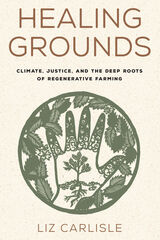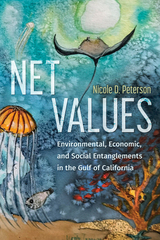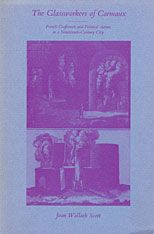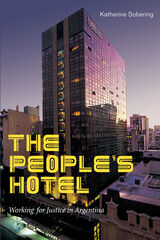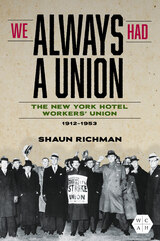A compelling analysis of representations of domestic workers in contemporary Latin America. Randall shows how different types of sources—literary testimonios, documentary and fictional films, and digital media artifacts, produced by, about, and with domestic workers—all reveal the painful coexistence of intimacy and affection with exploitation and domination. The book is an important reminder that racism, sexism, classism, and the overall legacy of slavery and colonialism can only be challenged if cultural representations are meticulously scrutinized and consciously denaturalized.
— Patricia Pinho, University of California at Santa Cruz
Paid to Care is a tour de force of intellectual articulation between cultural representations of domestic workers and class structure. Throughout a rich corpus of cultural texts, the book identifies the tensions and power dynamics between workers and employers and pays particular attention to the workers’ voices. The introduction of ’testimonios’ presents readers with the problems of consent, mediation, and appropriation of their voices and experiences in the production of cultural texts. In this sense, Paid to Care conveys the relevance of approaching the representations of domestic workers by reworking the relationship between theory and agency.
— Karina Vázquez, University of Richmond, author of Aprendices, fabriqueras y obreros: El trabajo industrial en la narrativa argentina del siglo XX (1930–2007)
Insightful...Nuanced analysis.
— CHOICE
Marxists continue to state the theoretical mantra that so-called ‘reproductive labour’ is by definition already paid for in the wage earned by the worker as the return on labour power. Rachel Randall’s book about cultural representations of paid domestic workers in Latin America can be seen as a valuable contribution to this complex debate, by drawing attention to an equally uncomfortable theme for materialist analysis—human emotion.
— Latin American Review of Books
Randall’s book engages with previous research on marginality, class, and gender in Latin America and makes a significant contribution to the discussion of domestic workers’ rights, especially in light of her examination of rights that are not even spoken about by labor unions (such as: who has free time? what kind of family is a domestic worker supposed to have?). The book also makes a methodological contribution to the different forms of oral documentation (written, filmed, or virtual) and allows an enlightening discussion on the process of publication of others’ life stories […]. Randall allows us to look at both sides of the coin and examines, on the one hand, the intervention on domestic workers and the way their life stories are framed and told or filmed, and, on the other hand, the waves of influence of each publication of a life story in a film, testimonial book, or post on social networks.
— EIAL
This book is an important contribution to scholarly discussions around care work, paid domestic work in particular, and how these reflect perpetuating and unresolved societal inequalities and hierarchies. The author convincingly argues for focusing on representations in the cultural realm to better understand prevalent societal attitudes and dispositions towards issues that have been addressed legally yet not resolved.
— Journal of Gender Studies
[This book] is a must read...It is very well researched and offers lucid arguments that throw new light on a topic that hasn’t been adequately addressed. Randall leaves no stone unturned and clearly demonstrates how this inheritance from the colonial period continues to define our social relations in the home up to the present time.
— Hispania
